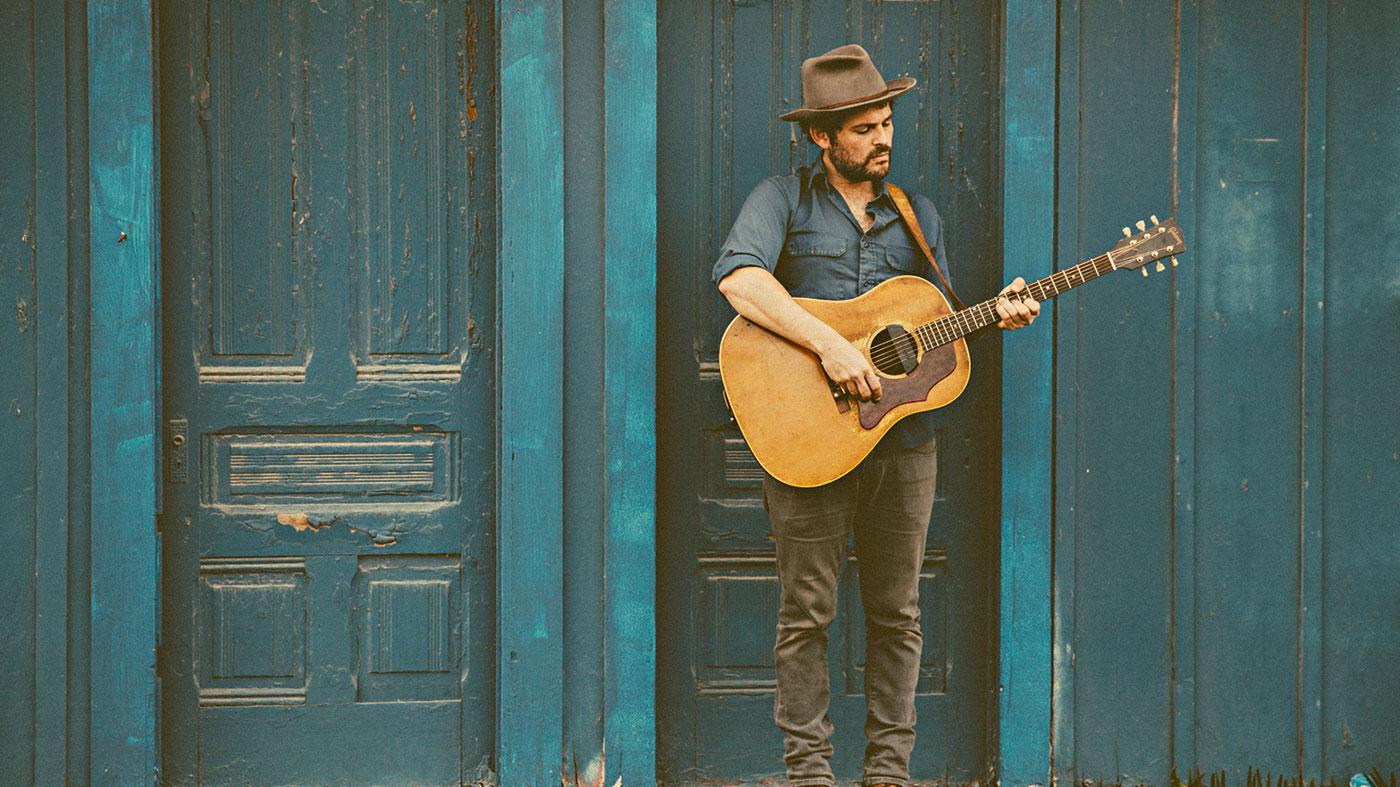Gregory Alan Isakov: “Creating something with your hands is so rare. With guitar, we’re creating something out of thin air”
The Coloradan singer-songwriter discusses songwriting, travel and craft

A master craftsman songwriter, Gregory Alan Isakov captures rich snapshots of life with deceptively minimalist arrangements.
It is no surprise that the music of Colorado singer-songwriter Gregory Alan Isakov has always occupied its own space. His heavy-hearted indie-folk seems both cavernous and intimate all at once, like diary entries scrawled across landscape paintings.
He sees the world through the eyes of a traveller and that sense of open space seems to define his life and his approach to musicianship. Isakov spent the first six years of his life in South Africa before his family upped sticks for Philadelphia, PA.
Someone once said, ‘You’re really great at writing!’ And I was like, ‘Just have no friends for, like, 20 years!’
“My parents moved to the States in 1986,” he tells us. “It was during the peak of apartheid and it was an intense change. You know, that’s a really different vibe growing up with mango trees, and then moving to Philadelphia. It’s grey. I was scared of the things I’d seen on TV - tornadoes from Wizard Of Oz and stuff like that! We had a one bedroom apartment and then after that my dad got a job and so we moved around quite a bit. We changed schools a few times. I did finish high school, but I dropped out. I did some travelling, hiked a part of the Appalachian trail. I could never sit still.”
When he’s not on the road, you’ll find him settled on a farm in Colorado, raising everything from sheep to medicinal cannabis. Even now, though, the songwriter confesses he’s naturally shy by nature. That the performer tag is not one he wears easily, but during those formative years music became a reliable companion in a somewhat subsistent lifestyle.
“It’s weird,” he says. “Looking back, my two brothers and I always had a band set up in the basement, wherever we went, so we got really close and played a lot. Someone once said, ‘You’re really great at writing!’ And I was like, ‘Just have no friends for, like, 20 years!’”
Inner world
Instead, music became a tool for defining himself in a way that was not dependent on his family or social life.
Get the MusicRadar Newsletter
Want all the hottest music and gear news, reviews, deals, features and more, direct to your inbox? Sign up here.
“It was just nurturing this really wild inner world that is, I think, in all of us and really spending a lot of time there,” he says. “That’s where songs come from for me. People often say, ‘Who’s that song about? Where’s that song come from?’ And I can never answer that and I wonder if people are ever telling the truth in response to that. That’s not my experience of how it works, you know?”
It came from a love of travelling and a love of landscape, because I was so shy. But that was what made me go for it, you know?
The first sign of the itchy-footed musician putting down roots came, ironically, with his enrolment at horticultural school in Colorado. Music and a calling in agriculture made for natural bedfellows in Isakov’s mind. The farming allowed him to work, to make and the space to think and be inspired, while music offered the creative outlet he needed.
“It stuck,” he says. “I think any kind of landscape makes it into your music, you know? I was working on this farm throughout college and in the winters I had a lot of time off and I wanted to go travel and sleep in my truck. I thought, ‘Well, if I could just pay for my campsite by playing songs, that’d be awesome.’ So that’s how I fell into it. It came from a love of travelling and a love of landscape, because I was so shy. I still am, I think, but I that was what made me go for it, you know?”
Thousands of miles of travelling and seven albums have followed and Isakov has earned a reputation for making finely-honed music. His most recent album Evening Machines is a typically masterful construction, building a sense of airy, spaciousness up from quiet acoustic arrangements.
“I remember [aged 14] me and my guitar player busting up our four-track because we were like, ‘We’ll never sound like Pearl Jam!’” laughs Isakov. “Then, I realised that what came naturally to me was a lot of quiet music and a lot of space in my writing… Saying the most with a short fragment of a thought. I love Leonard Cohen as a poet because he’s so sparse. It’s like the whole world is slowing down and there’s space. That’s what I want my music to do.”
In the end, it comes down to craft. “It’s something I’ve always been blown away by,” concludes Isakov. “Creating something with your hands is so rare nowadays. But we’re playing these boxes of wood with strings and creating something out of thin air.”
The ’67 sound
How a veteran J-50 found its way to become a mainstay
Isakov’s go-to instrument is a ’67 J-50 Gibson. “It was given to me by a friend of mine,” he explains. “He’s a farmer and he has a ranch up in Nebraska. He’s a veteran and he brought that guitar to Vietnam with him. One day he said, ‘I’ve left you something in the garage…’ I thought it was weed because he smoked weed all day. I looked in and there was a buffalo skull and this guitar case. It smelled like a library book and the neck was just bent to shit, but I took it to a friend in Ithaca, New York and he steamed off the neck and re-fretted it and I’ve been playing only that guitar ever since.”
Gregory’s album, Evening Machines, is out now on Dualtone Records.
Matt is a freelance journalist who has spent the last decade interviewing musicians for the likes of Total Guitar, Guitarist, Guitar World, MusicRadar, NME.com, DJ Mag and Electronic Sound. In 2020, he launched CreativeMoney.co.uk, which aims to share the ideas that make creative lifestyles more sustainable. He plays guitar, but should not be allowed near your delay pedals.
“Nobody listens to one genre. I literally don’t know anybody who listens to one genre. You can be a fan of so many different artists at once”: Laufey on what Gen Z can teach the rest of us about how to appreciate music
“KIKI BOY 2025”: Frank Ocean appears to be teasing something... or other












